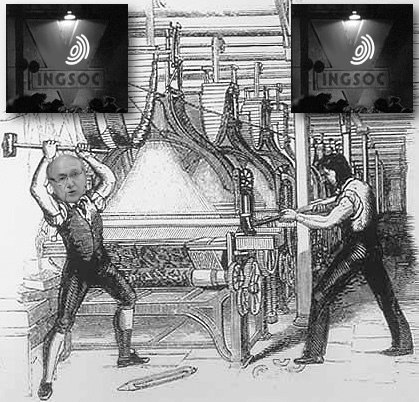

LAST night we wrote about some of the latest lies from the EPO's President Benoît Battistelli and Team UPC. All that wishful thinking from Team UPC would have us believe that the UPC can still happen -- the same kind of lie that Battistelli and his foot soldiers (like Margot Fröhlinger) try to make probable. Some of the latest nonsense about UPC ratification is dressed up as Dutch, but it is perfectly clear that the UPC cannot pass without the UK (and it won't happen any time soon, if ever).
For any patent office, it would be good to separate search and examiner processes. The two must be done by two separate departments so that each has good time to perform their part. This era of internet throws up tonnes of prior art.
Provide good time for the examiners to understand the inventions that they need to examine. They should be allowed to consult (in a clear transparent way, with written documentation of the conversations) applicant at all times during the search and examination.
Limit the number of claims per application (10-15 only), per category for a thorough search and examination.
It would be good to ask prior art directly from the inventors -- as opposed to the patent offices of corresponding applications. Many come up with the most relevant ones only.
Pressurize: Further institutionalised production upward spiral: increasing production and productivity is a permanent mantra at the EPO. Since 2014 an 18% increase production target has been deemed adequate. The President has forecast a further 10% increase for 2016.
Hire...: Clear instructions have been given to recruit as quickly as possible as many examiners as possible: for instance instructions from the HR department (4.3) have been issued to effectively revise the decision leading to rejection of candidates in DG1 recruitment procedures;
... and fire: Revision of disciplinary procedures is due in the June AC meeting: if it passes, it will allow the President to dismiss staff for professional reasons – such as underproduction - without disciplinary committee;
A life after?: The “post-service integrity” reform [...] will allow the EPO President to decide if a former employee is allowed to work in whatever area: patent attorney, lobby, journalist, blogger, SUEPO, Charity, etc. The threat of a pension cut (a further change to be decided by the June AC meeting) or being deleted from the list of professional representatives before the EPO (managed by the EPO) is deterring for former employees;
As if this were not enough, further reforms seem to be under discussion:
Production: There are plans to apply the “corridors” (production targets linked to the individual grade) more systematically in the coming years. That would lead to substantial supplementary pressure for high grades employees, which happen to be the old part of the population and are considered less desirable staff in the EPO lately. Clearly an underproduction warning (see above) works as an adequate deterrent against inflexible staff.
Flexibility: There are rumours of plans to revise Art. 46 ServRegs, i.e. to “flexibilize” the use of “reserve status” to deal with overcapacity and render it much more economical for the EPO. As the rumour goes, a maximum of 2 years with 50% salary would be “offered” to staff chosen at the discretion of the President;
Insecure: Despite regular official denials (such as those of the Early Certainty dedicated site FAQs), rumours are recurrent that EPO Staff would be recruited on contracts: in particular, contracts for examiners may become the new standard [...] Unseen just a few years ago, according to the latest published staff changes, there is already a clear trend to recruit more and more examiners on contracts: In May, 17 of the 18 new entrant examiners were contract staff, in March all 21!
More uncertainty: Rumours are becoming insistent that a Pension reform is imminent: without going into details, the direction can only be detrimental to all staff, also in place, as the present administration considers that “acquired rights” are superfluous old-fashioned privileges.